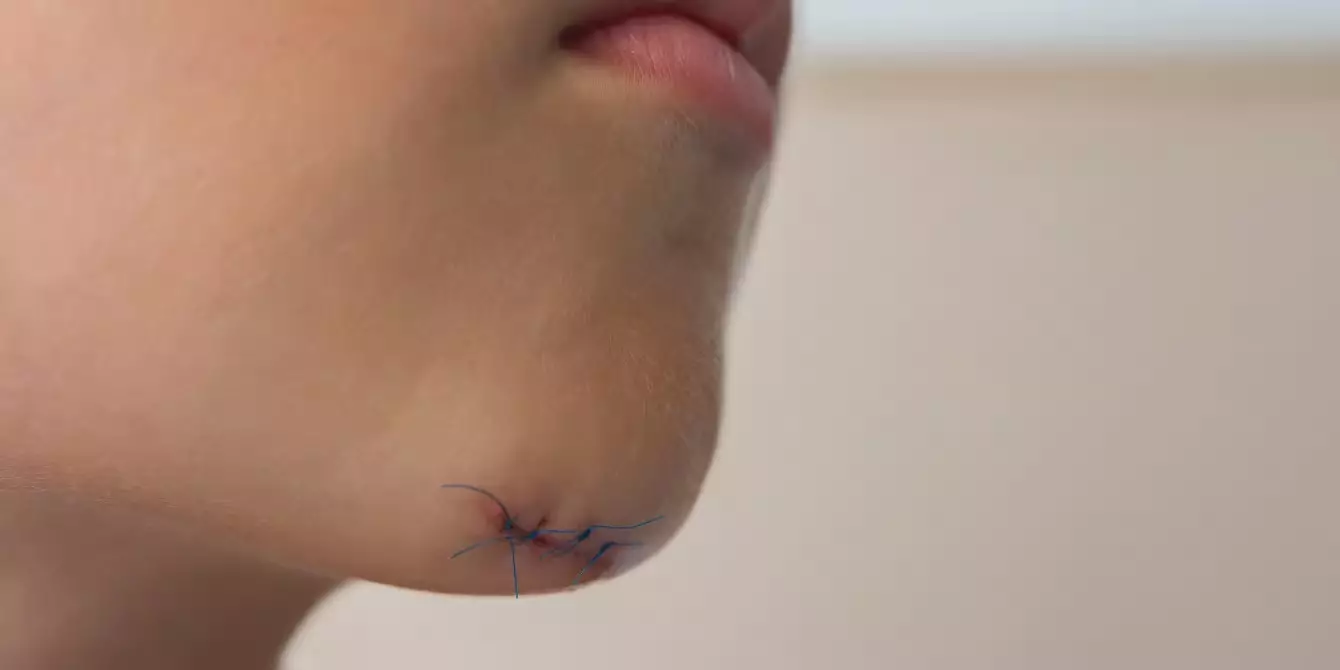Every parent understands the heart-stopping moment when their child tumbles and gets hurt. I recently witnessed this first-hand when my two-year-old took a nasty spill at the playground, catching his forehead on a dangerously sharp sidewalk edge. In that fleeting instant, the joyous atmosphere turned serious. While parents often dread the hospital visit more than the injury, it’s essential to navigate this experience in a way that builds resilience rather than fear.
Our trip to the hospital was, undeniably, fraught with emotions. Watching my son undergo a procedure that necessitated six stitches was painful for both of us. The sound of his cries during the anesthesia injection echoed through the sterile room, tugging at my heartstrings. But amidst the chaos and uncertainty, he surprised me with an unexpected perspective: “That was fun!” he exclaimed on the way home. This singular phrase mirrored a greater truth—we had managed to transform a potentially traumatic experience into one that he viewed positively.
The Importance of Preparation
Understanding how to set the stage for medical visits is essential in easing children’s anxiety. The knowledge gap creates fear, and it’s our job as parents to bridge that space. Being prepared should not merely mean having a checklist of items to bring; it’s about instilling confidence and clarity in our children.
First and foremost, maintaining a calm demeanor is vital. Children can sense their parents’ anxiety; if we exhibit calmness, they’re more likely to feel the same. Confidence is contagious, and it’s our responsibility to transfer that assurance to them. We also need to communicate openly about what they can expect. Instead of tiptoeing around the details, honesty about the possibility of pain or discomfort is crucial. Explain that while some parts may hurt, the outcome is essential for their well-being.
Involving Children in Their Care
A proactive approach goes beyond mere explanations. Involving children actively in their care not only helps demystify the experience but also empowers them. When we prepare them for the inevitable—showing them the doctor’s tools, explaining procedures, and allowing them to ask questions—we equip them with the power to navigate the situation rather than feel victimized by it.
Many healthcare professionals are sensitive to the needs of young patients, adapting their methods to ensure inclusivity. However, there are also those who may not engage in this way. As a parent, I’ve found that it’s beneficial to openly communicate with my son’s healthcare providers regarding the process. I encourage them to show my child what they are using and what each step entails. This communication invites a medical partnership rather than an imposing experience.
Building Bridges Through Narration
During the procedure itself, I take on the role of a narrator. Describing each step as it unfolds acts to alleviate fear and confusion. For instance, I explain when they’re about to take the alcohol swab or when they’ll be using a particular tool. This kind of sportscasting gives the child a sense of control and comprehension, allowing them to process the situation in real-time.
Contrary to the tendency to distract children from discomfort through toys or jokes, engaging them openly about what they’re experiencing helps mitigate lingering fears. Rather than merely handling medication or procedures in a detached manner, an interactive approach creates a bonding experience and fosters understanding.
Redefining Their Experience
The idea that children may not be able to cope with difficult procedures often reflects our underestimation of their resilience. By choosing to involve them in their care actively, we challenge the narrative that they are passive participants in their health journeys.
We can enable children to voice their preferences, whether that means deciding where to receive an injection or what angle to look from. Such choices can result in remarkable cooperation. Allowing children to make even small decisions can increase their sense of agency and confidence—a crucial psychological shift that can reverberate into other areas of their development.
If we believe in our children’s strength and competence, they will often rise to those expectations and may even leave with a newfound sense of thrill about their experiences. After all, who would have thought a hospital visit could be deemed “fun”? By reshaping how we approach medical challenges, we turn trepidation into triumph and arm our children with the tools they need to confront fear head-on.

